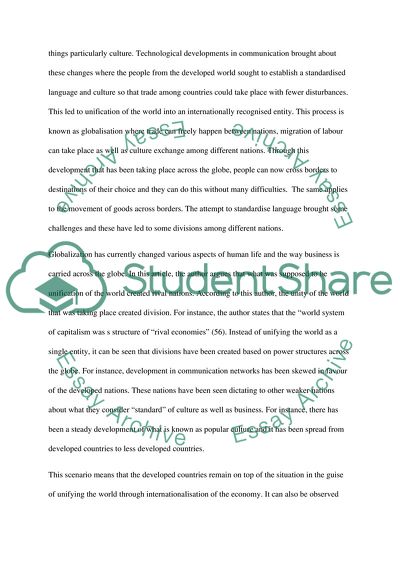The World Unified Case Study Example | Topics and Well Written Essays - 750 words. https://studentshare.org/macro-microeconomics/1819265-the-world-unified
The World Unified Case Study Example | Topics and Well Written Essays - 750 Words. https://studentshare.org/macro-microeconomics/1819265-the-world-unified.


